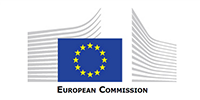
The European Commission is today delivering on its ambitious Aviation Strategy for Europe by adopting a series of measures to further support open and connected aviation markets in the European Union and beyond. These initiatives aim to safeguard competition and connectivity in aviation, facilitate investments into European airlines and enhance the efficiency and connectivity of European skies. This will reinforce the competitiveness of European aviation, which is a strong driver of job creation, economic growth and trade. Open and connected aviation markets offer better value flights to a greater choice of travel destinations worldwide.
Vice-President for Energy Union Maroš Šefčovič said: "Our Aviation Strategy of December 2015 set an ambitious vision for the future of European aviation. Since then, we have worked hard to implement this vision jointly with all stakeholders. Today's proposals aim at maintaining Europe's leadership in international aviation, as well as at improving connectivity and airspace efficiency. A strong and sustainable European aviation sector is essential to support the EU's economy and climate goals."
Commissioner for Transport Violeta Bulc said: "We want to ensure that Europe remains a leader in international aviation, well connected to fast-growing markets, with efficient European skies. The success of European aviation is based on open and connected aviation markets. Our actions should deliver concrete benefits for passengers, workers and the aviation industry."
Today's 'Open and Connected Aviation' package includes four initiatives, which deliver on two core priorities of the Aviation Strategy for Europe adopted by the Commission in 2015:
Maintain leadership in international aviation
European air connectivity in international air transport is equally dependent on foreign and EU airlines. When flying to or from the EU, all air carriers are granted the same rights. This may not always be the case for EU airlines when operating outside of the EU. In the absence of international rules, EU airlines may be subject to practices affecting competition. In the long run this could also affect the EU's connectivity, impacting the Union's competitiveness and limiting the choices of travellers. The Commission is therefore proposing a new tool to ensure that EU airlines can compete on the basis of equal opportunities and connectivity can be safeguarded. It will allow the EU to take appropriate action, should certain practices put the EU’s connectivity at risk.
In order to grow and thrive in a competitive environment, EU airlines also need access to investment, including foreign investment. Today, the Commission is adopting guidelines on the ownership and control of EU airlines. By bringing more clarity and certainty to investors and airlines alike, these guidelines will facilitate investments and help create new jobs.
Tackle limits to growth in European skies
The main challenge for the growth of European aviation is to address the capacity, efficiency and connectivity constraints. Connectivity has a direct impact on economic activity and on people's mobility: more flights mean more growth and more jobs. In certain European regions however, air travel remains a challenge, which is why Member States and local authorities can introduce Public Service Obligations to guarantee sufficient connections to the rest of their territory and of Europe. Today, the Commission is adopting guidelines on the existing rules regarding Public Service Obligations in aviation. They will make it easier for national authorities to address connectivity gaps, better serve the needs of local communities and contribute to their wealth.
Another priority is to enhance the efficiency of European skies by reducing its fragmentation, which is responsible for EUR 3 billion of extra costs a year and 50 million tonnes of CO2, and by minimising air traffic disruption. Today the Commission is therefore inviting Member States and aviation stakeholders to consider a number of good practices to ensure air service continuity in the event of industrial action. These practices do not question the fundamental right to strike, but rather aim to improve service continuity and minimise disruption to the European network for airlines and passengers. Between 2005 and 2016, more than 243,000 flights were cancelled due to industrial action in Air Traffic Management, affecting around 27 million passengers. The good practices put forward by the Commission draw on a number of existing practices across the EU Member States.
European Commission
Transport directly affects everyone in Europe. Whatever age we are, and whatever activities we undertake, transport and mobility play a fundamental role in today’s world. The aim of the Commission is to promote a mobility that is efficient, safe, secure and environmentally friendly and to create the conditions for a competitive industry generating growth and jobs. The issues and challenges connected to this require action at European or even international level; no national government can address them successfully alone. The European Commission’s Directorate-General for Mobility and Transport works in concert with the European Union Member States, European industry, citizens and stakeholders.




Comments
There are no comments yet for this item
Join the discussion